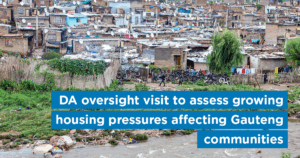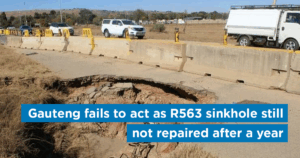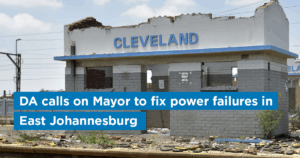The Gauteng Department of Infrastructure Development (GDID) under the leadership of MEC Tasneem Motara continues to put the livelihoods of small business owners at risk where a contractor has failed to pay R60 million to subcontractors for work done.
This information was revealed at a recent meeting held by the Gauteng Provincial Legislature’s Portfolio Committee on Infrastructure Development with sub-contractors on the Kopanong hospital project.
The government set an expectation whereby 30% of the value of a contract must be given to small and medium businesses for growing that sector but it fails to ensure that the contractors upskill people, eradicate poverty and empower small businesses.
During the portfolio committee meeting, it came to light that the main contractor for the Department of Health and Infrastructure Development has failed to honour its contractual agreements to pay subcontractors on time.
These departments are doing nothing from their side that will ensure that the objectives of the 30% policy are met which is unacceptable.
This makes it very difficult for our small businesses to pay their workers on time, who in turn will fail to pay their rent or bonds on time and put food on the table.
Furthermore, it is even more concerning that GDID is failing in its mandate to have proper monitoring and evaluation tools in place to ensure that they meet all their contractual obligations.
To add insult to injury the Kopanong hospital project which is currently under scrutiny is still not complete. This hospital was earmarked as a Covid-19 emergency project yet there is nothing to show for the money that was spent to date on the project.
This project was supposed to be completed within four months and yet 11 months later the contract with Codocor was terminated for non-performance after only 65% of this project was completed.
The DA will continue to fight for the rights of subcontractors by ensuring that the departments of Health and GDID pay all subcontractors on time.
In addition, the DA will also demand that effective consequence management tools be put in place to ensure that critical infrastructure projects are completed on time and within budget.









